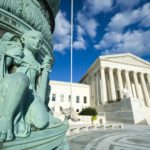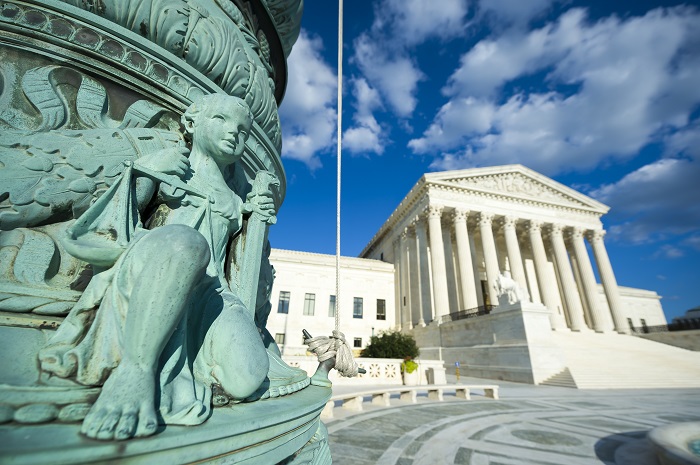 There is no discovery rule for federal Fair Debt Collection Practices Act claims, the U.S. Supreme Court held today. Affirming the U.S. Court of Appeals for the Third Circuit’s decision in Rotkiske v. Klemm, today’s opinion also overrules an earlier ruling from the U.S. Court of Appeals for the Ninth Circuit, Mangum v. Action Collection Serv., Inc. There, the Ninth Circuit permitted FDCPA claims to run from when the plaintiff knows or has reason to know of the violation.
There is no discovery rule for federal Fair Debt Collection Practices Act claims, the U.S. Supreme Court held today. Affirming the U.S. Court of Appeals for the Third Circuit’s decision in Rotkiske v. Klemm, today’s opinion also overrules an earlier ruling from the U.S. Court of Appeals for the Ninth Circuit, Mangum v. Action Collection Serv., Inc. There, the Ninth Circuit permitted FDCPA claims to run from when the plaintiff knows or has reason to know of the violation.
Rotkiske had sued a collection law firm alleging it violated the FDCPA by filing a lawsuit to collect a debt after the debt’s limitations period had expired. But Rotkiske did not learn of the collection lawsuit until six years after it was filed because, he alleged, the suit was served at an address where he did not reside, and someone other than himself accepted service.
The District Court dismissed the case, finding Rotkiske’s FDCPA claim was filed well after the expiration of the FDCPA’s one-year limitations period. The District Court also rejected Rotkiske’s argument that the “discovery rule” permitted his lateness because he could not have discovered the FDCPA violation earlier. It also rejected the argument that because of the law firm’s alleged conduct, his FDCPA claim was “equitably tolled.”
The Third Circuit affirmed the trial court’s decision concerning the discovery rule. Rotkiske did not raise the equitable tolling argument on appeal.
No Discovery Rule
The background rule for interpreting statutes of limitation is that the time to file a claim begins to run “when the cause of action accrues.” This is the first moment when a litigant can file a lawsuit and ask a court for relief.
Sometimes Congress uses language that permits the running of the limitations period from when a person learns they have been damaged. So the limitations period could be calculated from this later date, the “discovery” date. But when Congress chooses statutory text that does not express its intention to include such “discovery” language, the “discovery rule” cannot be applied.
The Court’s opinion, delivered by Justice Clarence Thomas, found no support for a discovery rule in the text of the FDCPA.
Section 1692k(d) of the act provides that the time to bring an FDCPA claim begins to run “within one year from the date the violation occurs.” Congress’s choice of the phrase “violation occurs” is indicative of its intent to start running the clock on FDCPA claims from the date of the violation. This point was raised by the Receivables Management Association International (RMAI) before the Supreme Court in the amicus brief I authored on its behalf.
Equitable Tolling Waived
Rotkiske raised the equitable tolling argument once again. Still, the Court would not consider it for two reasons – it was not raised in his appeal to the Third Circuit or in Rotkiske’s petition for certiorari to the Supreme Court.
Justice Sotomayor, in a concurring opinion, agreed with the majority’s opinion and simply noted, “[n]othing in today’s decision prevents parties from invoking that well-settled doctrine” of equitable tolling.
Dissent Favors “Fraud-Based” Discovery Rule
Justice Ginsburg’s dissenting opinion reasoned that there is a “fraud-based discovery rule” that differs from both the traditional discovery rule and equitable tolling. Under the fraud-based discovery rule, when a person is injured by fraud, the limitations period does not begin to run until the fraud is discovered.
This differs from equitable tolling because equitable tolling does not look at when the limitations period starts, it recognizes it has already started. Equitable tolling only acts to suspend the running of the limitations period if the litigant is diligently pursuing her rights and is prevented from filing her lawsuit by “extraordinary circumstances.”
Justice Ginsburg believed that the fraud-based discovery rule applied to Rotkiske’s circumstances and that his FDCPA claim did not begin to run until he discovered the offending collection lawsuit.
The dissent believed that Rotkiske pleaded sufficient facts to support the fraud-based rule and that it was properly before the Third Circuit. Still, the majority and concurring opinions believed the Third Circuit correctly held the issue was not raised on appeal and was therefore not before the Supreme Court.
Fraud-Based Discovery Rule – A Higher Bar
The death of the traditional discovery rule in FDCPA cases can now be confirmed. Equitable tolling of FDCPA claims is not impacted by the decision as both the majority opinion and Justice Sotomayor’s concurring opinion point out.
As for the dissent, my opinion is that the “fraud-based” discovery rule has limited application to FDCPA claims. After all, it takes very few facts to allege a “false” statement as an FDCPA claim. But the bar is much higher for a “fraudulent” act.
I don’t believe Rotkiske pleaded the required elements to claim fraud – he never alleged that the collection law firm purposely concealed the debt collection lawsuit from him, which probably explains why Justice Ginsburg stood alone in her dissent.


